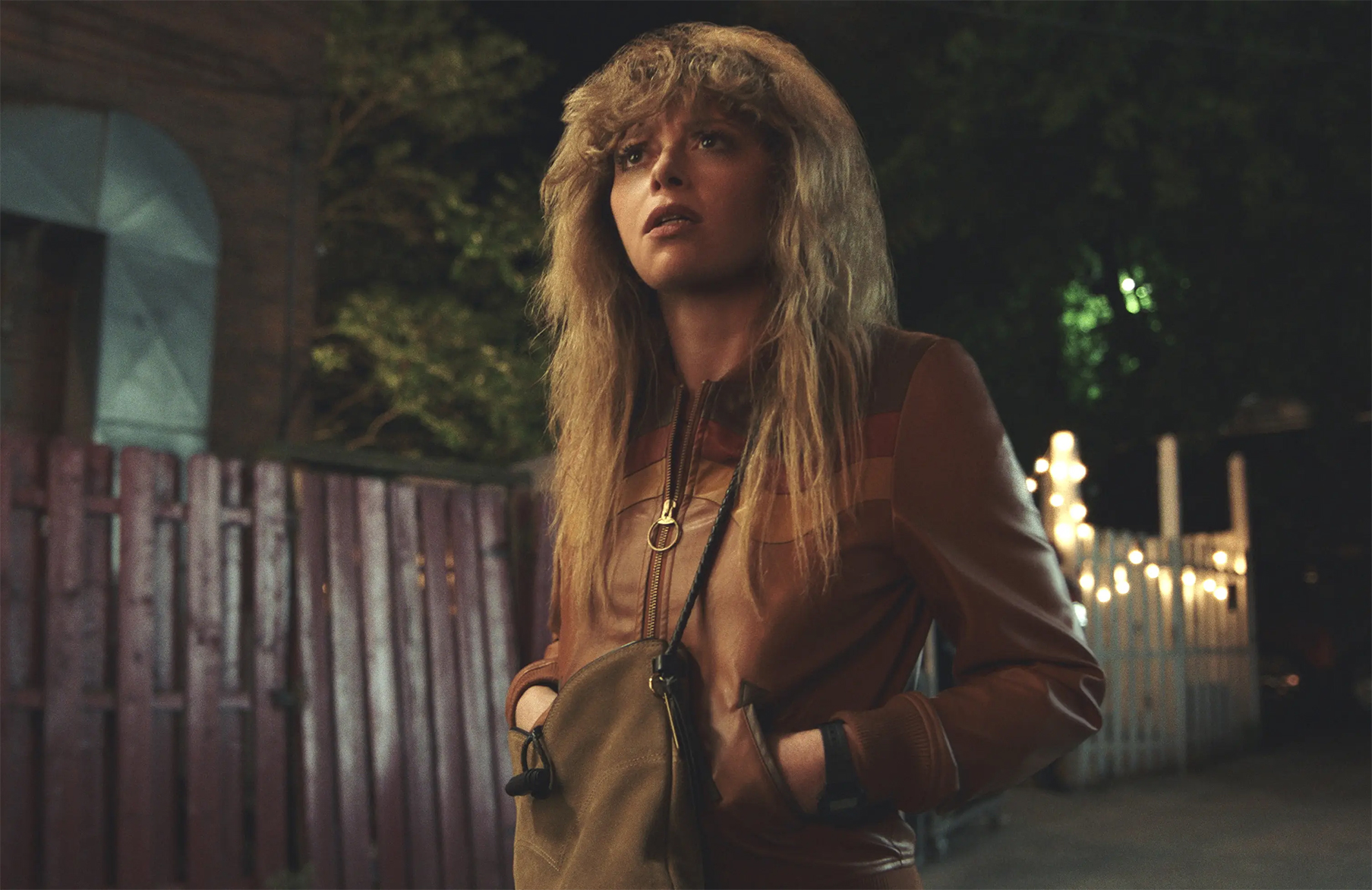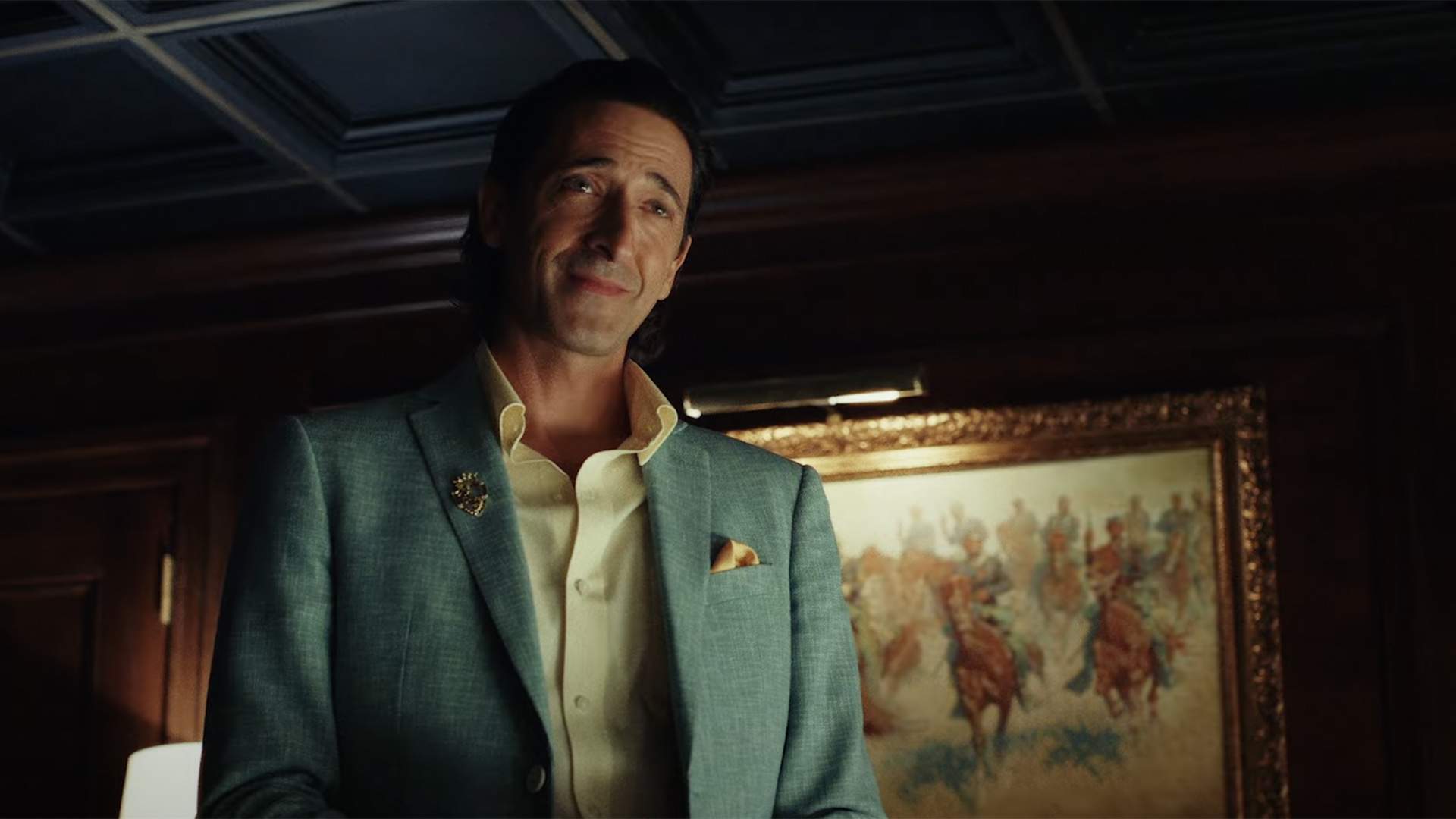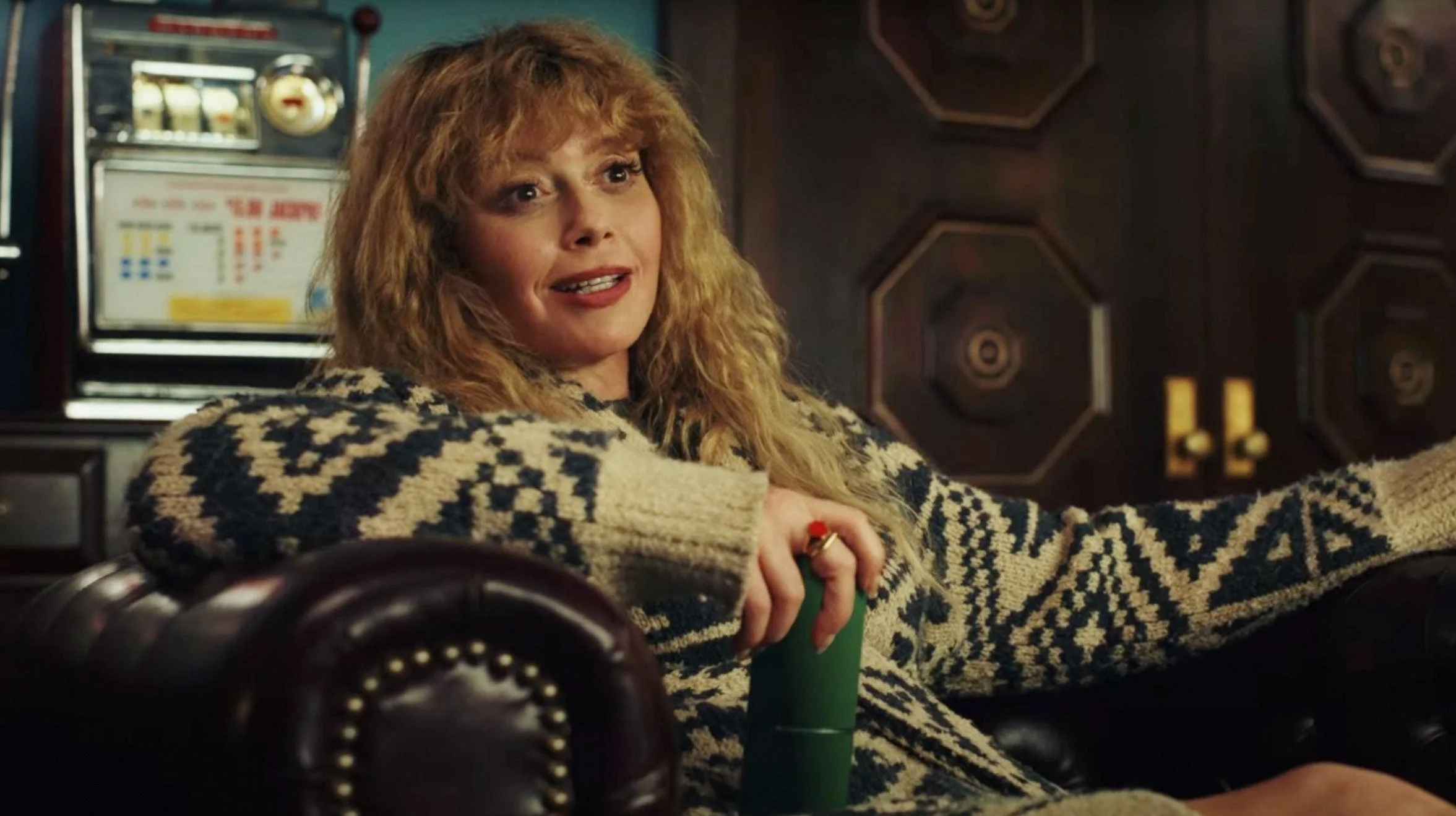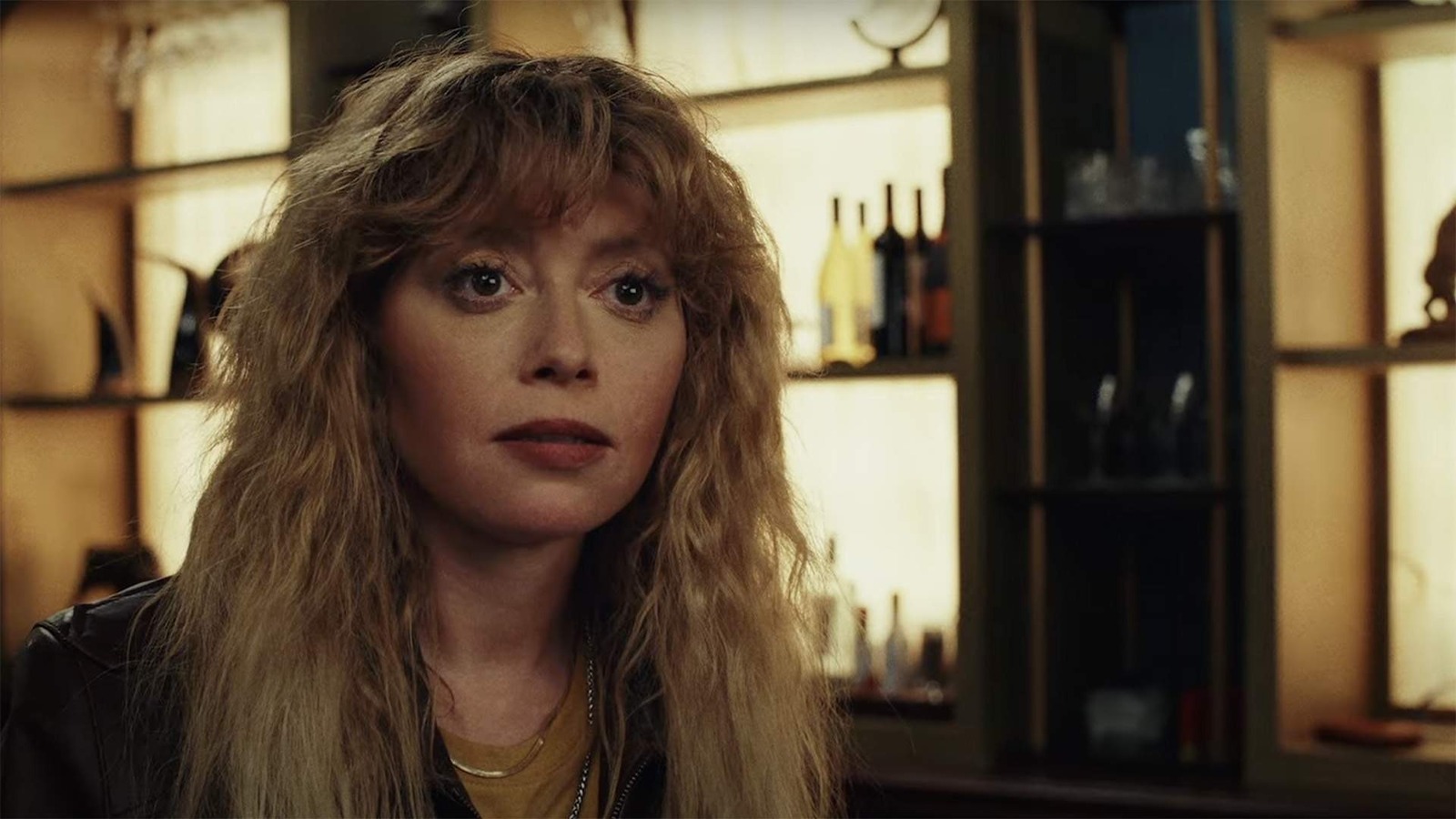This discussion contains minor spoilers for Poker Face, the new series from streaming platform Peacock.
Poker Face arrives on Peacock this week. It’s a fantastic show, but it also stands out as something of a curiosity in the modern streaming landscape.
There is a tendency to talk about modern streaming shows as “cinematic” and to treat the default form of modern prestige television as “a 10-hour movie.” Obviously, shows built around standalone episodes still exist, and procedurals like Criminal Minds, NCIS, and Law & Order are massively popular even on streaming. However, the dominant form of hour-long drama over the past decade — particularly high-profile prestige drama — has been “novelistic.”
This logic is so universal that it applies across the board, to shows regardless of genre or target audience. According to Wednesday co-creator Miles Millar, the plan with that show was “to make it an eight-hour Tim Burton movie.” The production team even hired Tim Burton to direct half of the first season’s eight episodes, his first work in television. This involvement of high-profile auteurs is another way television has become increasingly cinematic.
The involvement of a high-profile movie director on the premiere of a high-profile television show often signals a move in that direction: Martin Scorsese’s work on HBO projects Boardwalk Empire and Vinyl, David Fincher’s work at Netflix on House of Cards and Mindhunter, Lee Daniels on Empire. There are counterexamples, with Jordan Peele guiding a revival of The Twilight Zone to screen, but these are the exception rather than the rule.
Rian Johnson is a major creative force on Poker Face. The project originated in conversations with star Natasha Lyonne about their shared love for classic mystery shows. He wrote both the season premiere and the season finale and directed three of the first season’s 10 episodes. The trailer boasts that the series is “from the mind of Rian Johnson.” The cast includes a number of Johnson’s previous collaborators, including Adrien Brody, Joseph Gordon-Levitt, and Noah Segan.

Of course, Poker Face is not Johnson’s first involvement with television. He worked as a director on three episodes of Breaking Bad, including important episodes like “Fly” and “Ozymandias.” However, Johnson was an outsider on that project and was not a part of the show’s creative team. While doing publicity for Glass Onion: A Knives Out Mystery, the director was asked if that was something that he was interested in doing more of, to which he simply replied: “No.”
Poker Face is a loving homage to classic television. There is obviously a lot of Columbo in there, with the show’s murder-mystery-of-the-week premise. However, the series is also indebted to many of the “wandering hero” shows of the 1960s and 1970s, from The Fugitive to Kung Fu to The Incredible Hulk. Each episode, Charlie Cale (Lyonne) drifts into a new setting populated by new characters, finds murder most foul, and then continues on her way.
There is a loose overarching plot to Poker Face, but it is just a framing device similar to Richard Kimble’s (David Janssen) pursuit of the one-armed man (Bill Raisch) in The Fugitive. In reality, while Cliff (Benjamin Bratt) pops up to hassle Charlie a few times during the season at the behest of his employer Frost (Ron Perlman), following the events of the premiere, most of Poker Face is just good old-fashioned episodic storytelling.
This was something of a hurdle in getting the show commissioned. “I knew that there was a certain amount of gravity right now toward serialized storytelling, but I didn’t think that the notion of truly episodic TV in this mode was going to be seen as this big of a wacky swing,” recalls Johnson of pitching the series around Hollywood. “I was unprepared for the blank stares. And then the follow-up questions of, ‘Yes, but what’s the arc over the season?’”

There is a sense that Poker Face’s eventual home, Peacock, isn’t entirely sure what to do with this sort of show. The series premiere saw the release of four episodes — “Dead Man’s Hand,” “The Night Shift,” “The Stall,” and “Rest in Metal.” With the exception of the premiere, which sets up the show’s premise, these episodes largely stand alone. It feels like Peacock is releasing them all at once in the hope that the four episodes will teach a modern streaming audience how to watch it.
There is something inherently fascinating in all of this, in the idea that a television throwback can feel so fresh and exciting simply by existing in contrast to the dominant narrative form of the current moment. There is a lot to recommend serialized long-form narratives, but the template can also bring out streaming’s worst impulses. The rigid episodic structure of Poker Face avoids many of the pitfalls of modern streaming shows, like “the Netflix bloat” or “content-soup-ification.”
The television episode is something of a lost art form, a narrative framework with a long and distinguished history that is often dismissed or overlooked. Poker Face is a success simply in demonstrating the appeal of the form: the comfort of sitting down with a familiar show on a weekly basis, getting to meet a new guest cast in a new setting, with the production team cleanly getting in and getting out in 40-odd minutes. However, there is more to it than that.
Perhaps reflecting the challenges that Johnson faced in selling streaming services on the idea of an old-fashioned episodic television show, Poker Face often feels like an argument for its given format. It isn’t just a great example of the hour-long standalone drama that makes a solid case for that approach based on its own strengths, but it also feels engaged in a discussion about the validity of this storytelling template as an art form unto itself.

This is tied to the humanism that informs much of Johnson’s work, from the romantic optimism of The Last Jedi to the righteous anger of Knives Out and Glass Onion. At his core, Johnson is a filmmaker who believes in people, who is wary of systems and structures, and who has an innate curiosity about the larger world. These thematic preoccupations are better served by the rhythms of a weekly episodic show than a grand serialized narrative.
Most obviously, those classic “wandering hero” narratives are a logical extension of a classic American narrative, typified by figures both real and mythic, from Davy Crockett to Daniel Boone to Paul Bunyan. They are tales of exploration and the frontier. Fittingly, Charlie drifts through the American Southwest, a landscape tied to what William Ferris described as the “frontier mythology central to the larger American experience.”
Charlie is an outlaw like those old cowboys, but also like Richard Kimble from The Fugitive, David Banner (Bill Bixby) from The Incredible Hulk, and even James Bronson (Michael Parks) from Then Came Bronson. Charlie has no support system or recurring cast. As casino operator Sterling Frost (Adrien Brody) demonstrates in “Dead Man’s Hand,” law enforcement always bends towards the establishment. Charlie delivers justice, but she is not a cop.
Charlie’s journey is one of discovery and adventure. There is an inherent curiosity to Poker Face. Each week Charlie confronts new ways of living. In “The Night Shift,” a trucker named Marge (Hong Chau) teaches her about life on the road. In “The Stall,” Charlie works at a Texas BBQ with a chef named George (Larry Brown) and comes to share his love of the form. There’s an undeniable romance in this way of life, constantly meeting new people and learning new things.

“You live on the road, right?” George asks her. “So what’s it like, to leave everything behind and start fresh?” Charlie replies, “It’s easy. Too easy, maybe, life of fresh starts. But it suits me. And, yeah, you get to meet all sorts of people, all sorts of lives.” It’s very similar to the argument that Damian (Brandon Micheal Hall) makes in “The Night Shift” about how travel offers the opportunity to discover “how big the world actually is.” This isn’t just true for Charlie, but for the audience joining her on these adventures.
This is the appeal of an episodic television show. The world is conceptually limitless. There are always new things to see and new people to meet, in a way that simply isn’t true within the confines of a serialized narrative that structures itself as an extended feature film playing out over a full season. The narrative logic of a serialized narrative means a relatively confined cast and relatively restricted perspective. It is the opposite of a “life of fresh starts.”
Indeed, there is perhaps something to be said for the kinds of lives and perspectives showcased in Poker Face. As discussed, the show hearkens back to the conventions of 1970s television. Through the emergence of shows like All in the Family, that decade’s television put a focus on “the kind of ordinary, working people who had thus far been invisible on screen.” While it has been a turbulent couple of decades for the working class, they seem to slip out of popular consciousness.
Modern television depicts a world where “everybody belongs to the same generic, vaguely upper-class class.” Critics have noted the decline of the blue-collar sitcom, a staple of American television for decades. Veteran television writer Ken Levine has argued that it has become accepted wisdom that “working-class sitcoms will seem too depressing.” Richard Beck has noted that most high-profile prestige shows were “targeted at educated professionals.” Portrayals of the working class in cinema, often in awards fare like Hillbilly Elegy, often veered into grotesque parody.

In contrast, the murder mystery has often served as a prism through which the audience might interrogate notions of class. Agatha Christie’s murder mysteries are fascinated by the British class structure. Columbo, a very obvious influence on the narrative structure of Poker Face, was a class-conscious show in which “killers were usually rich, powerful, and openly disdainful of this blue-collar bumbler who just wouldn’t go away.”
Johnson continues this tradition. The protagonist of Knives Out, Marta (Ana de Armas), is an immigrant nurse. The hero of Glass Onion, Helen (Janelle Monáe), is a teacher. Charlie is introduced as a cocktail waitress who lives in a mobile home. “Dead Man’s Hand” is about the murder of Natalie (Dascha Polanco), a maid at a casino. “The Night Shift” is essentially a story about a group of characters who are so desperate that a $25,000 scratch card is a motive for murder.
The episodic structure of Poker Face allows the show to paint a grounded, empathic, and compelling portrait of lives that rarely come into focus on modern prestige television. It’s not just a great example of episodic television, but an argument for it as an art form.






Published: Jan 27, 2023 01:00 pm